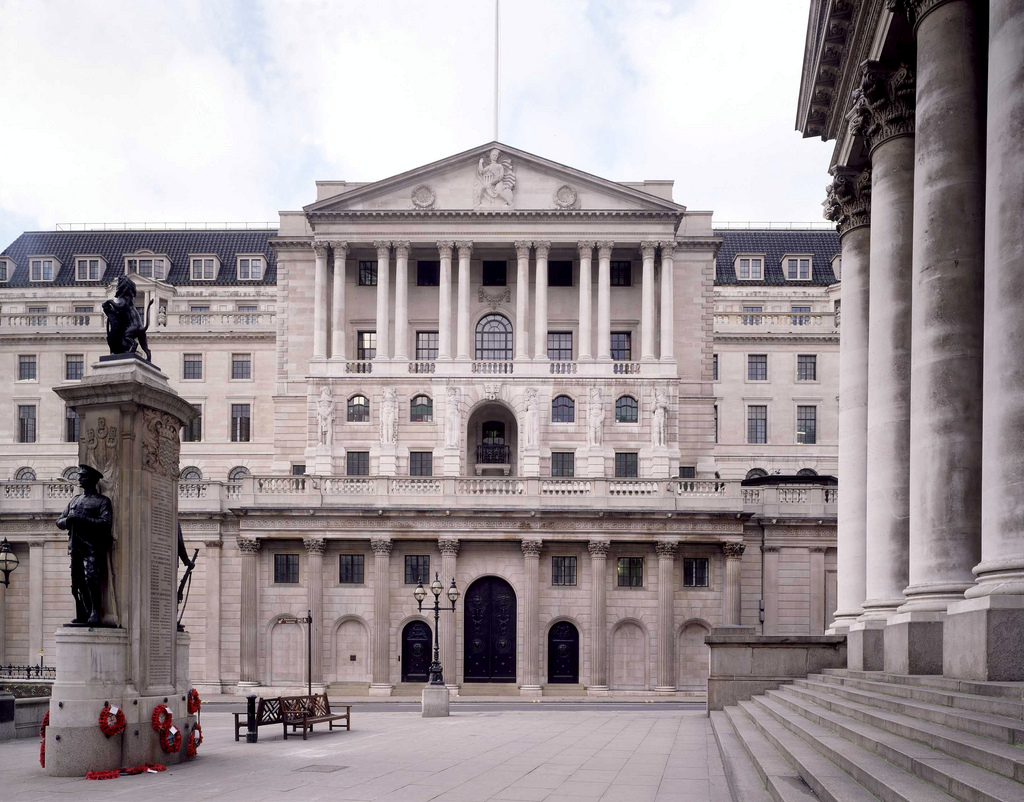6 July 2023
Sack the Governor!
by J.R. Thomas

A reader of this organ, a distinguished City figure, told me of a visit he once made to, as some rags might put it, a leading City banker. Our man was shown up to the executive floor, and then into the chairman’s outer office, through the hushed inner office, and finally into the great man’s parlour, his sanctum and retreat, the powerhouse of the bank. There he espied the great man himself, feet languidly resting on a great double partners desk, gazing out over the towers and spires of the City.
“Surely, this is no way for the chairman to set an example to his troops?” our man remonstrated (they knew each other well). The chairman looked thoughtful and replied “The chairman’s job is to make sure everybody else is the best person for that job, and that they are doing that job well; and in my bank they are. I just take my feet off the desk if there is a crisis.”
Ronald Reagan had much the same approach. Make sure everybody was clear what their brief was and that they were delivering it. Ronnie mostly told jokes, except when he was really required.
Is this the way of our Chancellor of the Exchequer? It clearly isn’t that of our current Prime Minister, who rushes from hospitals to schools to factories to the House of Commons, comments on the Test Match, then rushes off again to railway depots and care homes and livestock farms. We have some advice for him. Spend more time in the office. Get back to your Goldman Sachs self-discipline. Look at what the key people in your team are doing. Get Mr Hunt to pop through from next door. By all means get your feet on the desk, but find out from him what he is doing, who he is consulting, what his civil servants and advisors are up to. Oh, and as he leaves, perhaps sweating and shaking, ask him to send the Governor of the Bank of England to see you.
For that meeting you can leave your feet on the desk (though we suspect Rishi is much too polite to do that). It will be a very short meeting. Just sack him.
Why, you might ask? The Bank is after all right up with the times. Only this morning it proved that by saying that persons of any gender can be pregnant, and introducing gender neutral toilets on one floor of its illustrious premises in the City. (Why just one floor, we wonder?) This is perhaps going to be the substance of the Governor’s next letter to the Chancellor, proudly proclaiming this grasp of modern mores, whilst hoping to distract Mr Hunt from the fact that the B of E appears to have completely lost control of inflation. That is perhaps not altogether surprising, given that the Governor has recently said that wage rises need to be curtailed as they cause inflation. No, Governor; they don’t; they are the symptom of inflation, and if you are a poor paid worker in Middlesborough or Oldham, say, wage rises to keep pace with inflation are essential to pay the mortgage and put pizza on the family table.
Inflation is caused by the growth in the money supply exceeding underlying growth in the economy, simple A level economics. It was very obvious to most of us that the government’s massive Covid spending was going to cause inflation unless some very robust measures were taken and very quickly, and that meant turning the money fountain off very quickly and cutting government expenditure fast. Painful, but as we learned in the 1970’s, essential if the economy is not to be trashed. Imposing austerity is not the Bank of England’s job, but one important element of getting fiscally back on track is to raise interest rates fast. That is why Gordon Brown made the Bank independent of the Treasury, a truly remarkable move for a Chancellor, especially one as control freakish as Gordon, but something we have had gratitude for over the last 26 years. Even better, Gordon told the Bank that its job was to keep interest rates low – at around 2% base rate, and that he should receive a monthly letter from the Governor to let him know how closely the Bank was achieving its objective. (One cannot help pausing to contemplate Gordon’s reaction to a letter that told him rates were around 6% but that the Bank felt persons of any gender can become pregnant.)
Alas and alack, we have had two unimpressive Governors at the Bank in recent years, firstly Mark Carney who seemed to think his was a political appointment and used the job to push a green agenda, and then, currently, Andrew Bailey, whose qualifications for the role were even more obscure than Mr Carney’s (Mr Carney had done the same job in Canada). You may take the view that Mr Carney was au fait with the times and that green is good, but that was not his job; his role is to be a hard faced hatchet man who must concentrate on controlling interest rates; making reliable economic forecasts; and keeping those pesky unruly commercial bankers from running the entire banking system on to the rocks, their constant temptation (the latter two items being the Bank’s other key jobs).
Mr Bailey is a grammar school boy who went to Cambridge and got a Phd – Dr Bailey, strictly speaking. Following an obvious career path he moved to the LSE and then in 1985 to the Bank of England where he climbed steadily upwards, being noted as a safe pair of hard-working hands. Ten years ago he became head of the Prudential Regulation Authority, part of the financial system’s response to the 2008 banking crisis, where the Bank of England had rather obviously failed in the third element of its key roles, the pesky commercial bankers having almost demolished the banking system, and then in 2016 Bailey moved to the Financial Conduct Authority which regulates the players in the financial markets as part of a tripartite and overly complicated regulatory system. Here his reputation as a safe pair of hands and an alert one was somewhat tarnished and it was a big surprise to many when he became Governor of the Bank in March 2020; indeed it was suggested that nobody better for the job could be found, and you can read that whichever way you like.
In many ways it always seems that Mr Bailey would have been more suited as an academic, Dr Bailey indeed. Unlike most Governors he has no working experience in commercial banking or in the markets and he has not developed the antenna and relationships which are such an important part of the Governor’s ability to read the market and get commercial advice as well as academic. Indeed, he has filled the Court of the Bank (its board) with academics and lessened the number of City grandees, and that lack of experience and “feel” has been showing for some time. His tenure has failed at its key requirement and any chief executive who had missed his targets so badly would be dismissed.
Alas for Mr Bailey, he is the wrong man for the times. Bring in a tougher more alert senior City figure. Sack the Governor!


